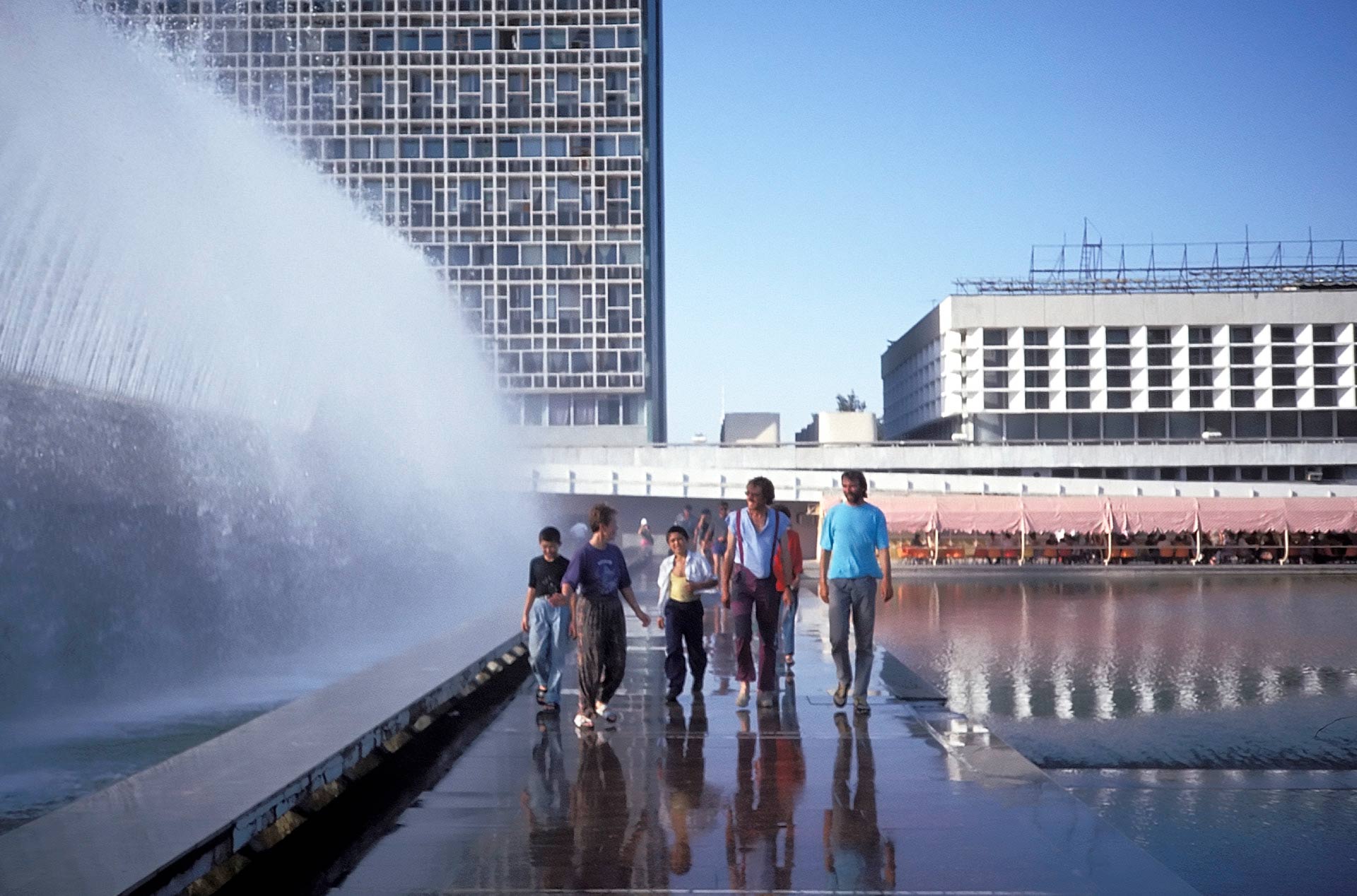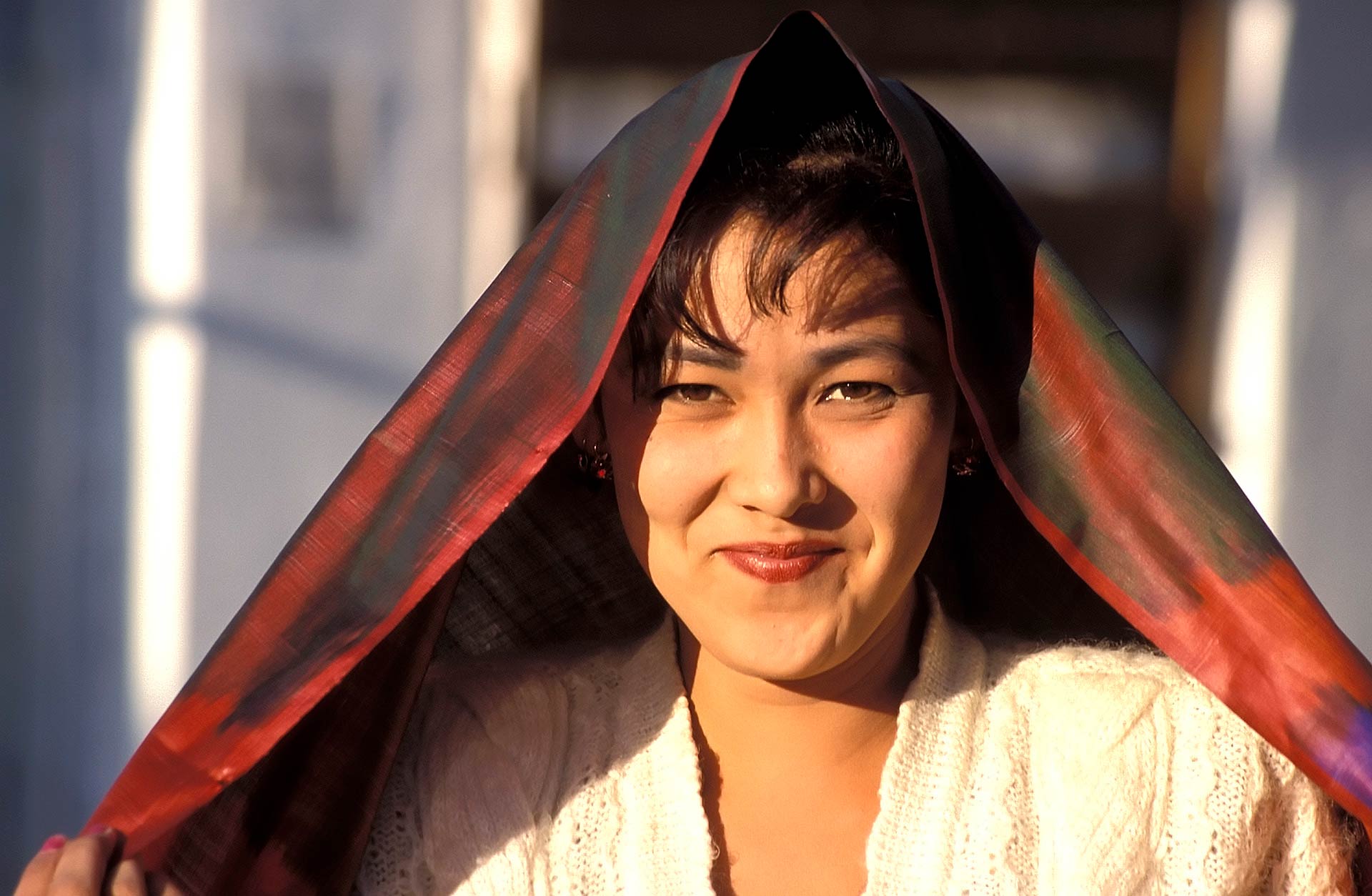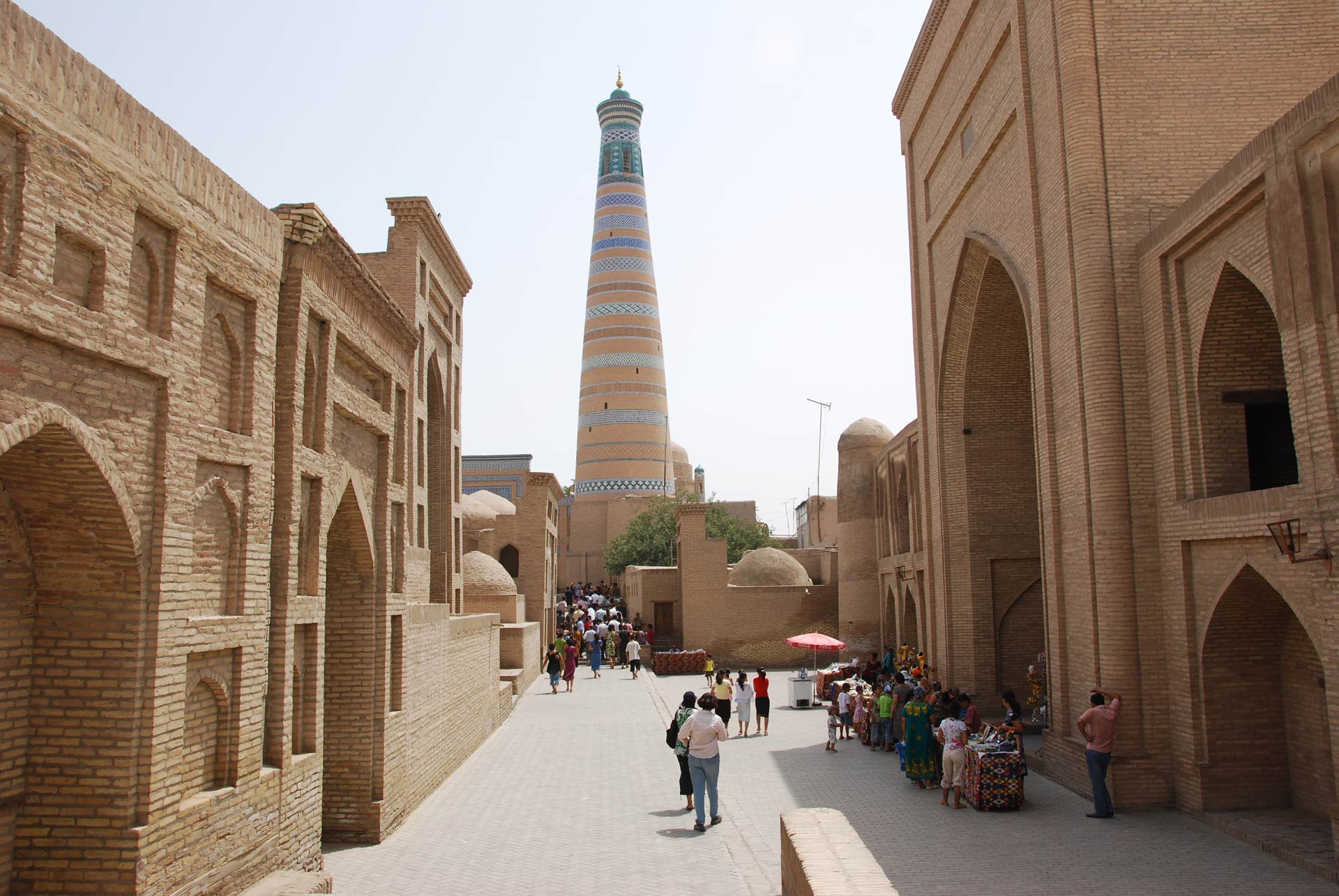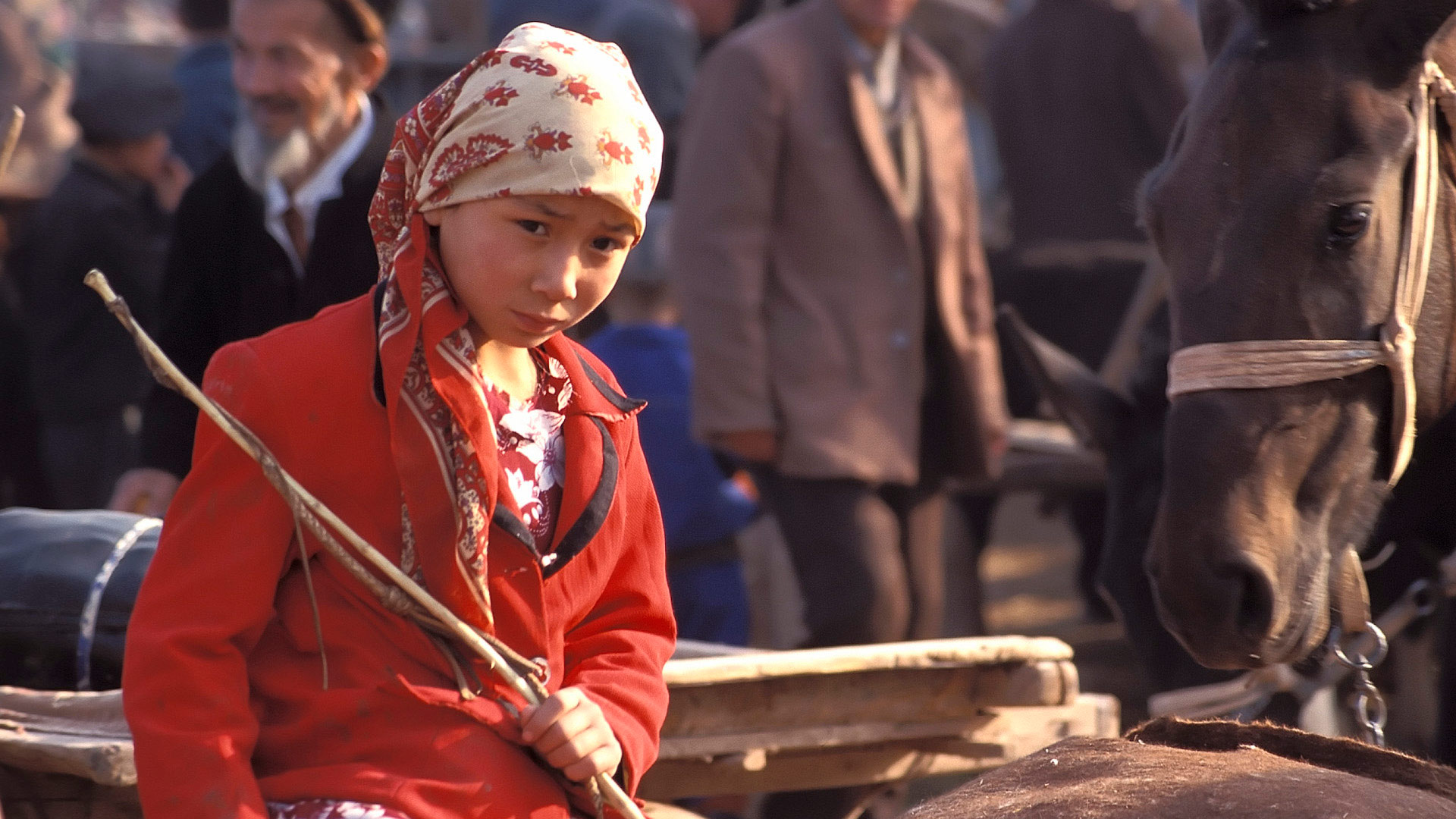Textiles, Pottery & Ceramics of Uzbekistan
Unravel the Magic of the Silk Road in Uzbekistan
Revised and Expanded
Book as a party of 4 and more and each person gets a discount of US$ 250 per person.
Book as a party of 4 and more and each person gets a discount of CA$ 360 per person.
Step into the heart of Uzbekistan, where the Silk Road once bustled with caravans, bazaars, and master artisans. This journey takes you deep into the country’s living traditions exploring the ancient art of silk-making, intricate embroidery, and vibrant ceramics. Try your hand at weaving and pottery under the guidance of skilled craftsmen who’ve inherited their knowledge through generations. Wander through atmospheric Silk Road bazaars and marvel at the cultural and architectural monuments of medieval times in Samarkand, Bukhara, Khiva, and Ferghana. Discover how these legendary cities shaped a legacy that inspired empires - from Timur’s artistic revival to the splendor of Mughal India. More than a tour, this is a hands-on immersion into the soul of Central Asia. A unique addition to this tour is a visit to Nukus to see the the Savitsky Museum, known for its collection of Russian avant-garde art. Additionally, the Mizdakhan Necropolis and the Aral Sea ship cemetery in Muynak offer a glimpse into the region's history and the effects of the shrinking Aral Sea. Due to lack of time Muynak is not included in this tour.
| UNESCO World Heritage Sites covered in this tour | |||
|---|---|---|---|
| 1. | Ichan-Kala, Khiva | 2. | Historic Centre of Bukhara |
| 3. | Samarkand – Crossroad of Cultures | 4. | Historic Centre of Shakhrisyabz |
| Tour Information | ||
|---|---|---|
| Duration | : | 15 days |
| Minimum | : | 4 persons |
| Maximum | : | 16 persons |
| Price (From) | : | |
| International air not included | ||
Welcome to Uzbekistan! We are warmly received at Tashkent International Airport and transferred to our Hotel. Balance of the day is free. Tashkent is the capital city of Uzbekistan. It’s known for its many museums and its mix of modern and Soviet-era architecture. The Amir Timur Museum houses manuscripts, weapons and other relics from the Timurid dynasty. Nearby, the huge State Museum of History of Uzbekistan has centuries-old Buddhist artifacts. The city’s skyline is distinguished by Tashkent Tower, which offers city views from its observation deck.
Overnight: Hotel Courtyard by Marriott/Hotel Lotte City Palace, Tashkent (2 nights)
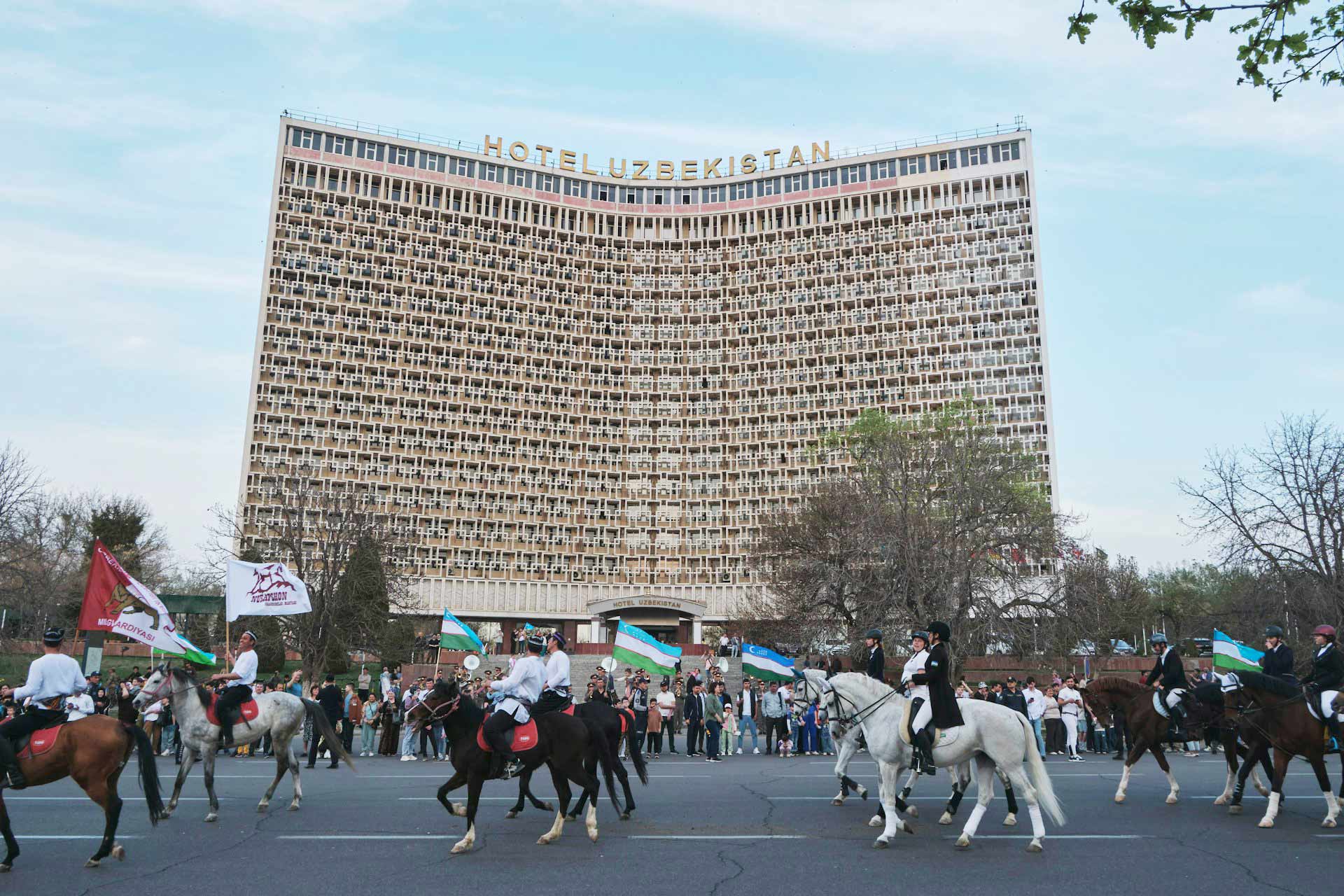
Our journey begins in the vibrant heart of Uzbekistan, the bustling metropolis of Tashkent. We dive into the charm of the Old City, where time seems to pause. At the serene Khast Imam Square, marvel at exquisite Islamic architecture, including the majestic Barak Khan seminary. A true treasure awaits inside the Tilla Shaikh Mosque - a revered Quran manuscript dating back nearly 1400 years, once used by the third Caliph. Next, loose yourself in the colors, scents, and rhythms of daily life at Chorsu Bazaar, the city’s most iconic market. Nearby stands Kukeldash Madrassah, a 16th Century relic whispering tales of medieval scholarship. At the Museum of Applied Arts, local craftsmanship comes to life with dazzling displays.
Afternoon, we meet Muhayo Aliyeva at her enchanting atelier, Bibi Hanim. Her creations, woven from traditional silk and cotton ikat, celebrate centuries of textile heritage from eastern Uzbekistan. Her work has graced runways and galleries across the globe. Delicious local cuisine crowns the day, with dinner enjoyed at handpicked restaurants that offer a true taste of Tashkent. (B, D)
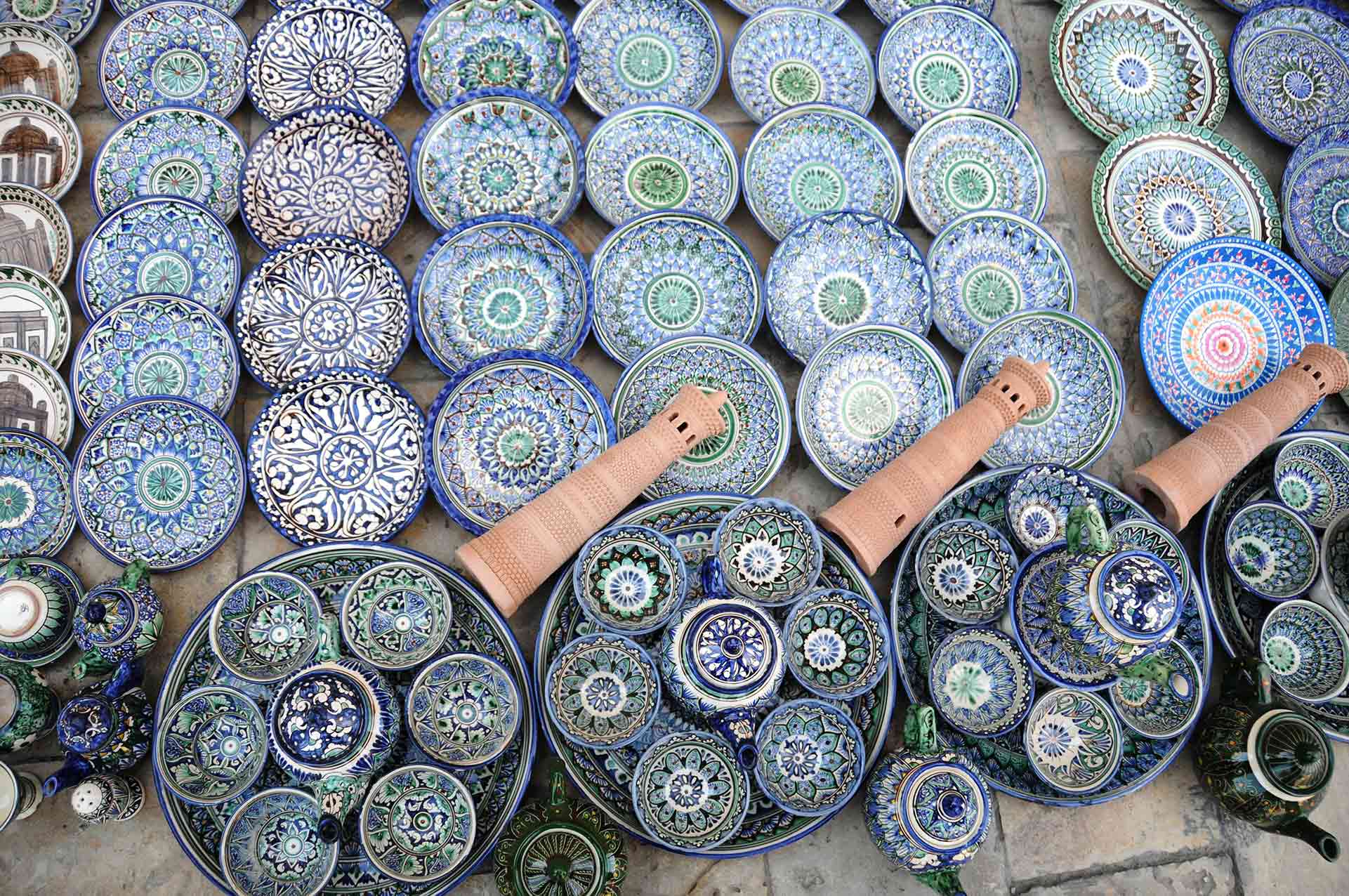
A one-hour flight gets us to the fabled Ferghana Valley, once a thriving Silk Road crossroad linking Central Asia to China. This lush and storied region is famed for its deep-rooted tradition of ikat - a centuries-old dyeing technique used to create intricate textile patterns that seem to dance with color.
Upon arrival at Margilan, the beating heart of Uzbekistan’s textile craft, we head to the historic Hoja Ihsan Madrassah, now transformed into a vibrant workshop where silk weavers, carpet makers, and cloth stampers breathe life into ancient skills. Here, we roll up our sleeves and join the artisans trying our hand at cloth stamping, working standing and sitting looms, and embossing delicate wooden motifs onto silk shawls. It’s a rare opportunity to connect with this living tradition.
We then make our way to the home workshop of Master Fazlettin, a celebrated figure in the world of Bakhmal silk and ikat weaving. In his humble studio, we get an intimate look at the magic behind these luxurious fabrics where each piece is a blend of history, art, and the human touch. We have a two-night stay in this culturally rich town - one of the Silk Road’s most treasured gems soaking in the rhythms, textures, and stories of the Ferghana Valley.
Overnight: Hotel Ikkat, Margilan (2 nights) (B, D)

Margilan, once a bustling Silk Road Caravan serai, is where caravans from China and beyond converged, weaving a legacy of culture and craftsmanship that endures till to this day. Famed for its silk since the 10th century, the town continues to enchant with the finest, featherlight fabrics, perfect for fashioning elegant linings or intricate Nuno felt designs. Our morning unfolds in the vibrant Kum Bazaar (subject to being open), where the air hums with energy as we meander through stalls brimming with vivid Uzbek textiles - each a kaleidoscope of color, natural dyes, and intricate weaves. It's a treasure trove for seekers of rare silks and authentic artistry.
Afternoon, we journey to Rishton, a town steeped in over 800 years of ceramic tradition. At the workshop of master potter Rustam Usmanov, we marvel at his tile-inspired artistry and explore the fascinating Ceramics Museum. Then comes our chance to get hands-on shaping our own plate or cup on the potter’s wheel under the guidance of local experts.
As the sun dips low, we return to Margilan, where a warm, home-cooked dinner awaits us paired with stories and smiles, and perhaps a glimpse into the world of Ikat weaving. (B, D)
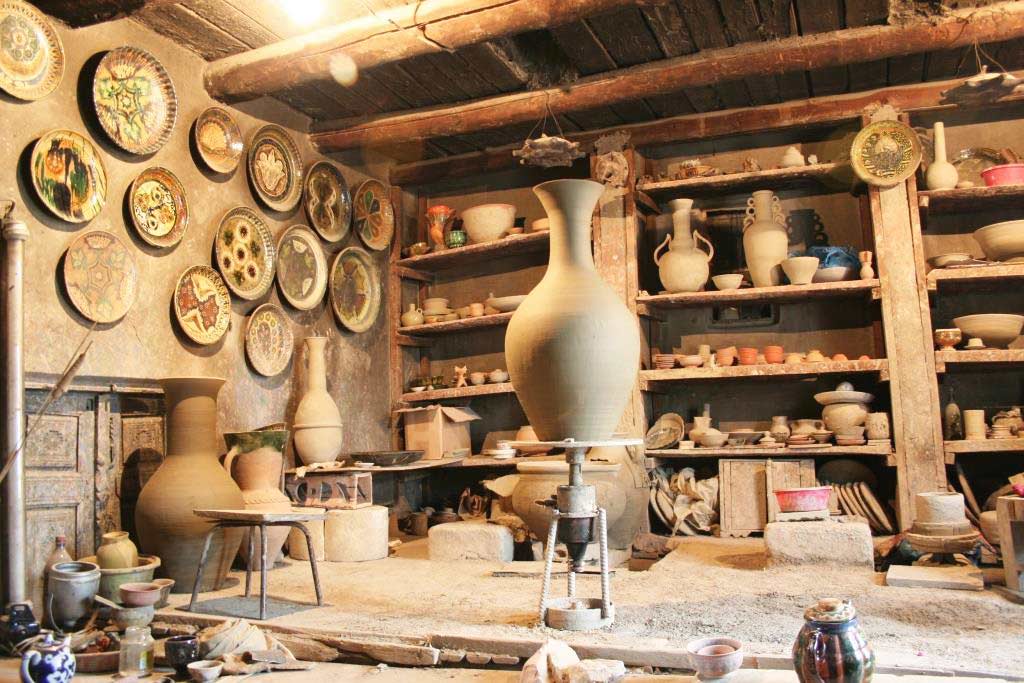
Our return journey to Tashkent begins with an unforgettable train ride, winding through the dramatic landscapes of the Kamchik Pass. This high-gradient route offers breathtaking mountain vistas at every turn—an experience as scenic as it is serene. Upon arrival we check in to our hotel with some time to rest. Early evening, we hop on board the Tashkent Metro. Far more than just a mode of transportation, this underground network is a living museum of the Soviet-era grandeur. Each station is a revelation - some gleam like opulent ballrooms adorned with grand chandeliers, while others evoke scenes straight from a futuristic film set. It’s a surreal journey through art and architecture, all beneath the city streets. After orienting ourselves in this dynamic metropolis, we enjoy dinner at a cozy local restaurant. Interestingly, Tashkent boasts more Turkish eateries than Uzbek ones. We experience a delightful mix of flavors as we toast to the upcoming new adventures in the heart of Central Asia.
Overnight: Hotel Courtyard by Marriott/Hotel Lotte City Palace, Tashkent (1 night) (B, D)
An early morning flight to Nukus home to the incredible Nukus Museum of Art, or more officially, “The State Museum of Arts of the Republic of Karakalpakstan” named after I.V. Savitsky - home to the world's second largest collection of Russian avant-garde artworks, galleries of antiquities and Karakalpak folk art. Savitsky arrived in Karapalkstan in 1950 for the Khorezm Archaeological Expedition, a time when the Soviet authorities were banning and destroying avant-garde artwork. His collection was gathered in secret and even renamed in order to protect the artwork. It was not until after his death in 1984 that his collection was put on display. The collection is the second largest in the world, totalling around 10,000 pieces of art. There are also thousands of other pieces of art, such as paintings, sketches and graphics by artists like Tarasov, Stavrovskiy and Ural Tanskykbaev. The museum was founded in 1966 just five years before the collapse of the USSR. Additionally, the Mizdakhan Necropolis and the Aral Sea ship cemetery in Muynak offer a glimpse into the region's history and the effects of the shrinking Aral Sea. After visiting the “Republic of Karakalpakstan”, we drive to Khiva arriving in time for dinner.
Overnight: Hotel Zarafshan Boutique, Khiva (2 nights) (B, D)

Khiva is an exquisitely preserved Silk Road city that gives an aura of a living museum. Our walking tour begins at Ichan Kala*, the walled heart of Khiva, where every step transports us back in time. We marvel at iconic landmarks like the Kalta Minor minaret, the Kunya Ark citadel, and the Rakhimkhon madrassah - each a testament to the city's glorious past.
Next, we explore the Hunarmand workshops for a glimpse into Khiva’s rich craft traditions. Watch artisans weave carpets, embroider suzanis, and carve wood with striking precision. Despite wood scarcity, local craftsmen skillfully use karagach trees to fashion ornate doors and pillars. We also visit a woodcraft workshop to meet the artisans at work, followed by a stop at the house museum of collector Kamil Jan, whose carpets span Turkmen, Bukharan, and Khivan styles. We visit the beautiful Pakhlavan Makhmud mausoleum, the Islam Khodja minaret and museum, the Friday mosque, and the Tashauli harem quarters of Khiva’s last Khan. Afternoon, free time to roam the enchanting old city. We end the day with a warm, home-style dinner at Zainab’s House, savoring traditional Khivan flavors. (B, D)
After breakfast we drive through the vast Kizilkum Desert, passing striking desert landscapes, the shimmering Amudarya River and scattered shepherd hamlets. Our destination is the legendary Silk Road city of Bukhara. Along the way, we enjoy a packed lunch featuring Uzbekistan’s famed bread - cherished not only for its flavor but also for its deep cultural ties to life’s milestones, from weddings to farewells.
By mid-afternoon, we are in Bukhara* and settle into our centrally located boutique hotel. After some rest, we set off on a guided walk through this timeless city. A jewel of the Silk Road, Bukhara is brimming with graceful minarets, elegant madrassahs, and ancient monuments that span millennia. Today, we visit the Aziz Khan and Ulubek madrassahs, wander through the bustling covered markets, and continue to the Mohgaki Attari mosque, the tranquil Lyab-i-Hauz plaza and the Nadirkhon Devanbegi madrassah.
Dinner awaits at the charming Old Bukhara Restaurant. To truly absorb the magic of this city, we’ll enjoy a leisurely three-night stay at a recently upgraded local boutique hotel.
Overnight: Latifa Begum Boutique Hotel, Bukhara (3 nights) (B, L, D)
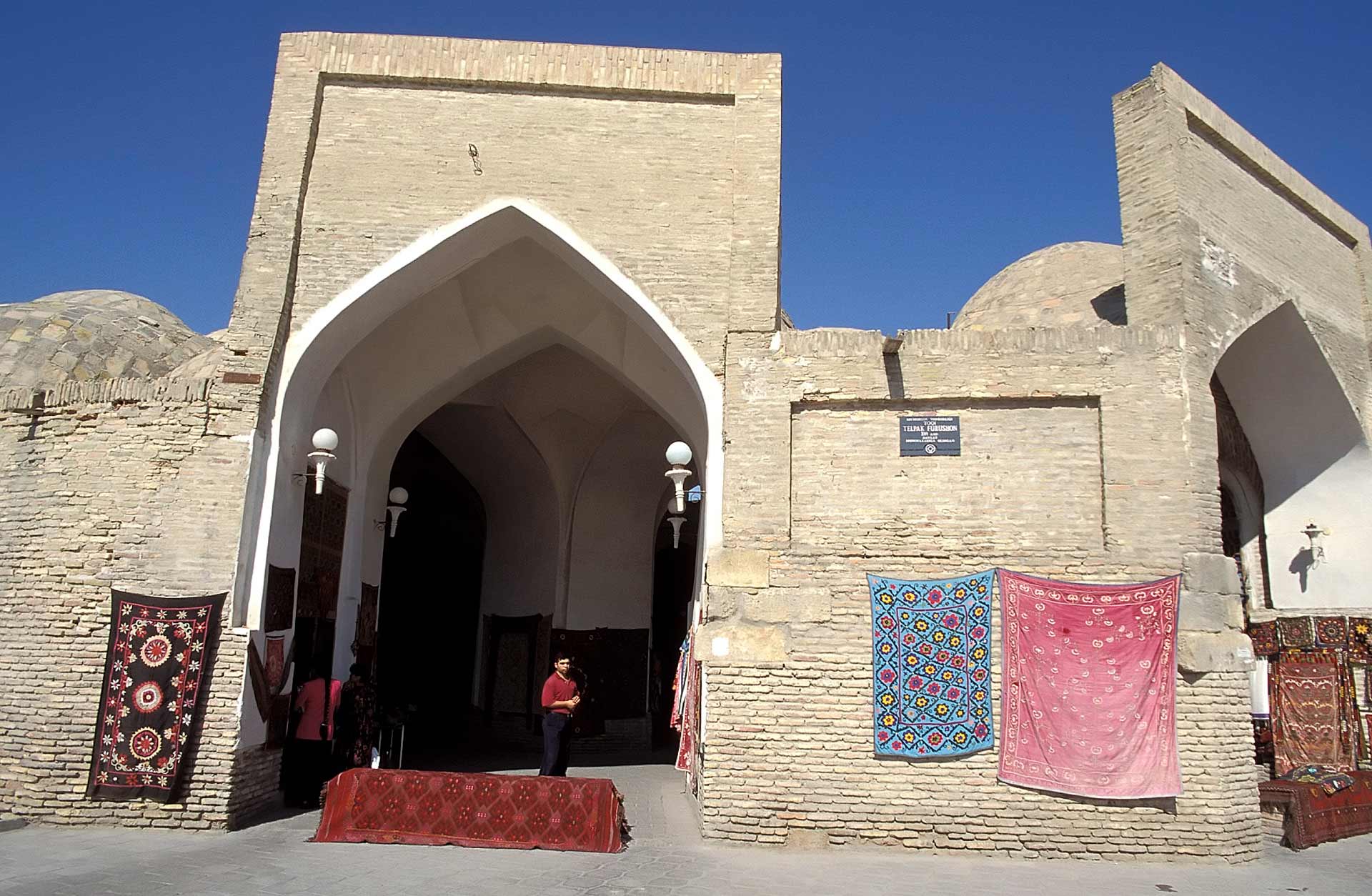
The Historic Centre of Bukhara, perched on ancient Silk Road caravan routes, is over two thousand years old. It stands as one of Central Asia’s best-preserved Islamic cities from the 10th to 17th centuries, with its original urban layout remarkably intact. We spend a full day uncovering Bukhara’s treasures. Starting from Lyab-i-Hauz and the Narikohn Devanbegi madrassah, we wander to the bustling Tipak Frushan covered bazaar. Here, we visit a metal chaser’s workshop where artisans craft intricate relief decorations, and the Tim Abdullah trader’s dome alive with carpet sellers. Next, we tour the Sovga Gold embroidery workshop, witnessing the creation of exquisite silk coats and jackets.
After free time for lunch (not included), we explore the Arg Fortress - the city’s oldest stronghold, occupied from the 5th century AD to the 1920s. We also explore the Balokhauz mosque, Chasma Ayub and the Ismail Samanid mausoleum - Bukhara’s oldest Muslim monument from 905 AD. A stroll through the oldest Jewish quarter leads us to the local synagogue. The day’s highlight is the Usto Shagird Gallery a “Master and Student” showcasing the works of miniaturist Davlat Toshev. In his home workshop, surrounded by exquisite miniature paintings inspired by 15th Century Persian art, we get to know why Bukhara became a hub for this delicate craft by the 1700s. End the day with dinner at a local restaurant, savoring the city’s rich history and culture. (B, D)
Today, we immerse ourselves in the rich tradition of embroidery practiced at Raxkhmon’s Suzzana House. Here, we’ll marvel at exquisite floral patterns, fruits, and regional symbols delicately stitched into vibrant textiles - and then try our hand at this age-old craft ourselves! Historically, Central Asian brides created suzanis as part of their dowry, decorating bed sheets, pillow covers, handbags, tablecloths, and wall hangings. Each piece tells a story, bursting with creativity and personal flair.
After this hands-on experience, we take a short stroll to a local synagogue in Bukhara’s historic Jewish quarter. The Bukharan Jews, one of Central Asia’s oldest ethno-religious communities, developed a unique culture shaped by centuries of migration from Iraq, Iran, Yemen, Syria, and Morocco along the Silk Road. Wandering the narrow lanes, we visit the home of Davlat Toshev, a celebrated Sufi miniature painter whose intricate works have graced galleries across Europe.
We end the day savoring dinner at a charming local restaurant, soaking in the flavors and stories of this fascinating city. (B, D)

Morning is at leisure to explore independently the local covered bazaars of Bukhara, well known for the variety of their wares and their unique traditional feel. Nothing like having a relaxing modern train ride on the ancient Silk Road. We will be on the deluxe Afrosiyob - a Spanish-designed 250km/h Talgo 250 which links Tashkent with Samarkand in just 2½ hours. Subject of famed poets and writers for centuries, Samarkand offers a tantalizing combination of elaborate monuments that will make our jaws drop, panoramas that have seemingly dropped right out of Arabian Nights, and a long rich history ripe to be discovered. Upon arrival, we are transferred to Hotel Grand Samarkand and start our tastes of Samarkand with dinner at a local restaurant. To get the most of Samarkand, its art, architecture, people, history here too, we will have a 3-night stay.
Overnight: Hotel Grand Samarkand, Samarkand (3 nights) (B, D)
A full day is set aside to discover the wonders of this Silk Road city. The day is dedicated to uncovering the marvels of Samarkand, the Silk Road gem once declared by conqueror Tamerlane as the "Capital of the World." The city’s grandeur lives on through its spectacular monuments, beginning with the legendary Registan Square. This iconic plaza, flanked by three monumental madrassahs adorned with dazzling azure mosaics, is one of the most breathtaking sights along the Silk Road.
We meet artisans, tile makers, calligraphers and metal chasers bringing centuries-old crafts to life. In Ulugbek’s madrassah, we admire a vibrant display of local fabrics and handicrafts. Continue to the grand Bibi Khanum Mosque, the lively Siyob Bazaar and the awe-inspiring Shahi Zinda necropolis - an ancient burial complex still evolving through the centuries.
Afternoon, we visit the gallery of Alfiya, a celebrated designer who blends traditional motifs with contemporary fashion.
Next, delve into the ancient world at the Afrosiab Museum and visit Ulugbek’s Observatory, built in the 15th century by the astronomer-king and grandson of Tamerlane. This scientific marvel still houses instruments once used to chart the stars and navigate the skies. At the Kunhil traditional paper mill, we witness the delicate art of crafting paper from mulberry bark. Our final stop is the magnificent Gur-e-Amir mausoleum, resting place of Tamerlane, Ulugbek, and their courtiers - a fitting end to our journey through time. Enjoy dinner at a local restaurant, and for those who wish, an optional evening visit to see the magical Registan Square illuminated at night. (B, D)
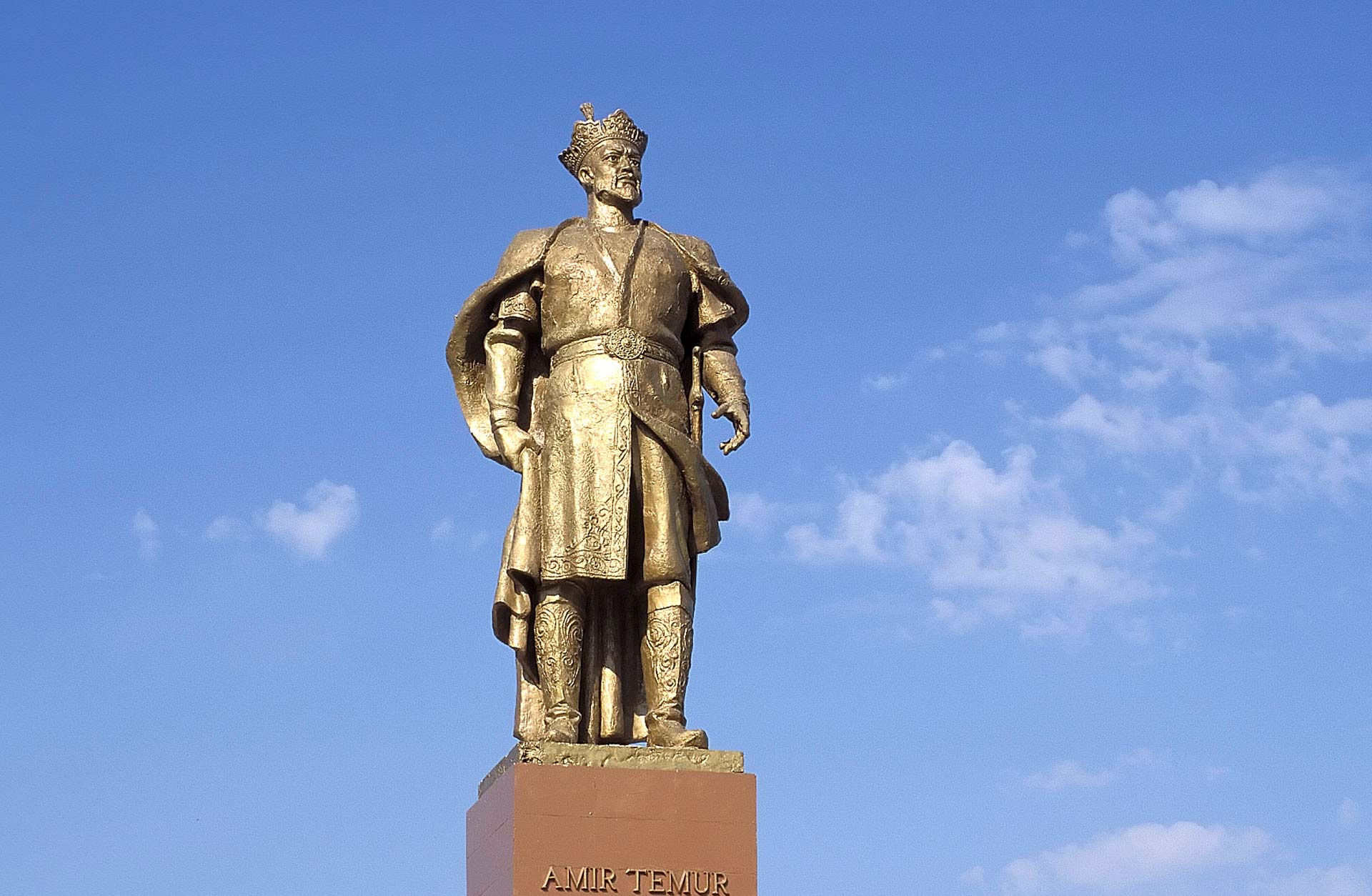
Begin with an unforgettable experience at the vibrant Urgut weekly Market. One of Uzbekistan’s most authentic and colorful bazaars, Urgut is a treasure trove for traditional jewellery, antique clothing, and stunning suzanis. Bustling with locals and brimming with color, it offers a true slice of everyday Uzbek life. Later, we stop by a village museum run by collector Gulom and admire rare suzanis and old textiles steeped in regional history. Our journey then takes us along a scenic mountain road to Shakhrisabz, birthplace of the legendary Tamerlane. Known historically as Timur, he was one of the world’s greatest conquerors, founding the 14th century powerful Timurid Empire. After its fall, his descendant Babur went on to establish the Mughal Empire in India, leaving an extraordinary legacy of architecture, gardens and artistic brilliance including the iconic Taj Mahal, Shalamar Gardens and the Red Forts.
In Shakhrisabz, we visit the workshop of Gulnara Odilova, a master of beadwork, weaving and embroidery. Her intricate designs revive 17th Century traditions, lovingly stitched into coats, handbags and wall hangings. A national award-winner and international exhibitor, Odilova is one of Uzbekistan’s most celebrated artisans, and seeing her creations so close is truly inspiring.
After this rich cultural encounter, we return to Samarkand and enjoy dinner at a local restaurant, reflecting on a day filled with color, craftsmanship, and history. (B, D)
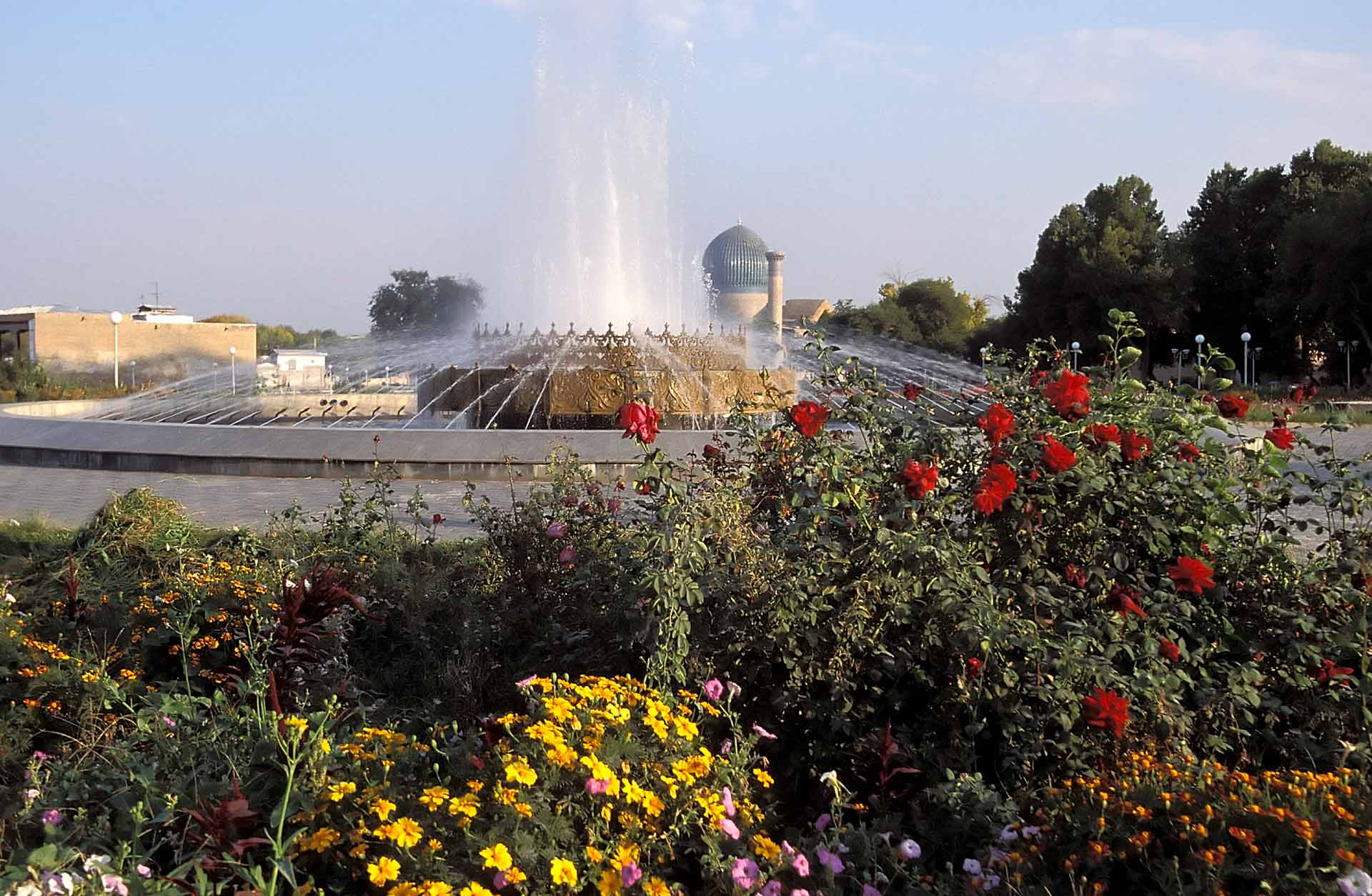
We have the day free to enjoy Samarkand on our own. Browse the winding streets, see the incredible monuments and feel the vibrant history of Samarkand. Good day for shopping. Hotel checkout time is 1100AM. Later, we are transferred to the railway station for our deluxe train journey back to Tashkent. Upon arrival, we are transferred to our hotel followed by a delicious farewell dinner at a local restaurant.
Overnight: Hotel Courtyard by Marriott/Hotel Lotte City Palace, Tashkent (1 night) (B, D)
After an incredible journey discovering the textiles, crafts and pottery along with experiencing the culture of Uzbekistan, meeting people, narrow lane bazaars from the Arabian Nights, we are transferred to the airport for our onward flight. For an optional extension and a customised excursion to see the nomadic crafts of Kyrgyzstan, please contact Bestway Tours & Safaris for more information. (B)
Departure Dates & Prices
| 2026 | Per Person on Twin Sharing |
Single Room Supplement |
|---|---|---|
| Departures | ||
| Apr 17; Aug 14; Oct 16 | US$ 4995 | US$ 650 |
| 2026 | Per Person on Twin Sharing |
Single Room Supplement |
|---|---|---|
| Departures | ||
| Apr 17; Aug 14; Oct 16 | CA$ 7188 | CA$ 936 |
|
Book as a party of 4 and more and each person gets a discount of US$ 250 per person.
Book as a party of 4 and more and each person gets a discount of CA$ 360 per person.
|
Notes
- Private and customised tours available. Please ask for details.
Inclusions
- 14 Nights' accommodation as mentioned or similar, including hotel taxes
- 28 Meals as mentioned (B=Breakfast, L=Lunch, D=Dinner)
- All sightseeing and transfers by private transportation
- Services of local English speaking guides
- Entrance fees to museums and sites included in the itinerary
-
Any airfares (within tour itinerary Tashkent/Ferghana and Tashkent/Urgench currently at US$ 290)Any airfares (within tour itinerary Tashkent/Ferghana and Tashkent/Urgench currently at CA$ 418)
-
Any train fares (within tour itinerary Margilan/Tashkent, Bukhara/Samarkand & Samarkand/Tashkent – all on executive classes US$ 190 per person)Any train fares (within tour itinerary Margilan/Tashkent, Bukhara/Samarkand & Samarkand/Tashkent – all on executive classes CA$ 274 per person)
- Insurance/visas
- Tips/gratuities
Participants
This tour operates on a minimum of 4 and a maximum of 16 participants
Customised Itinerary
If you would like to have a tour on dates other than the above ones or with a customised itinerary, please contact Bestway Tours & Safaris and we will be happy to work out an exclusive program for you.
Recommended Trips











